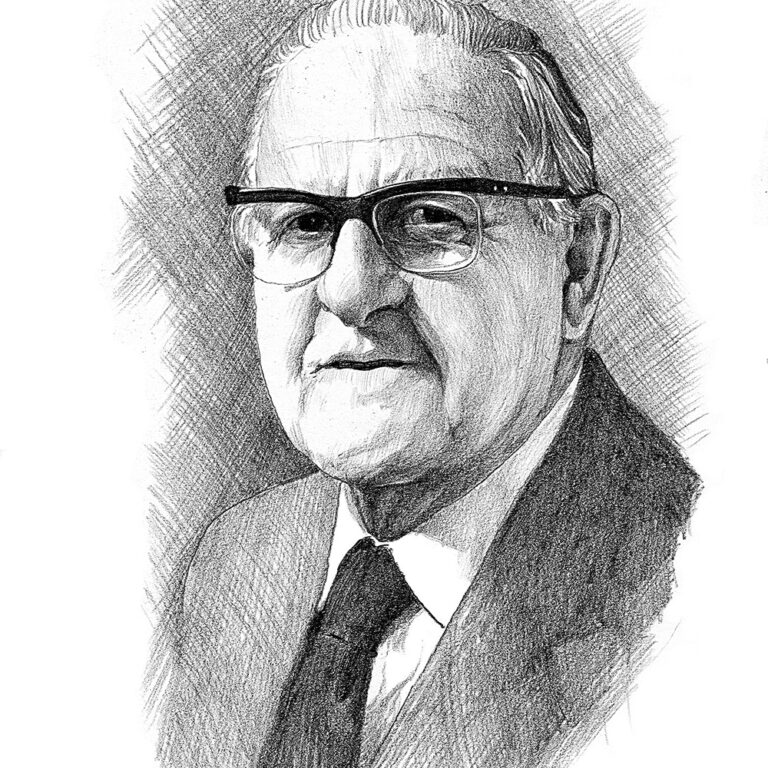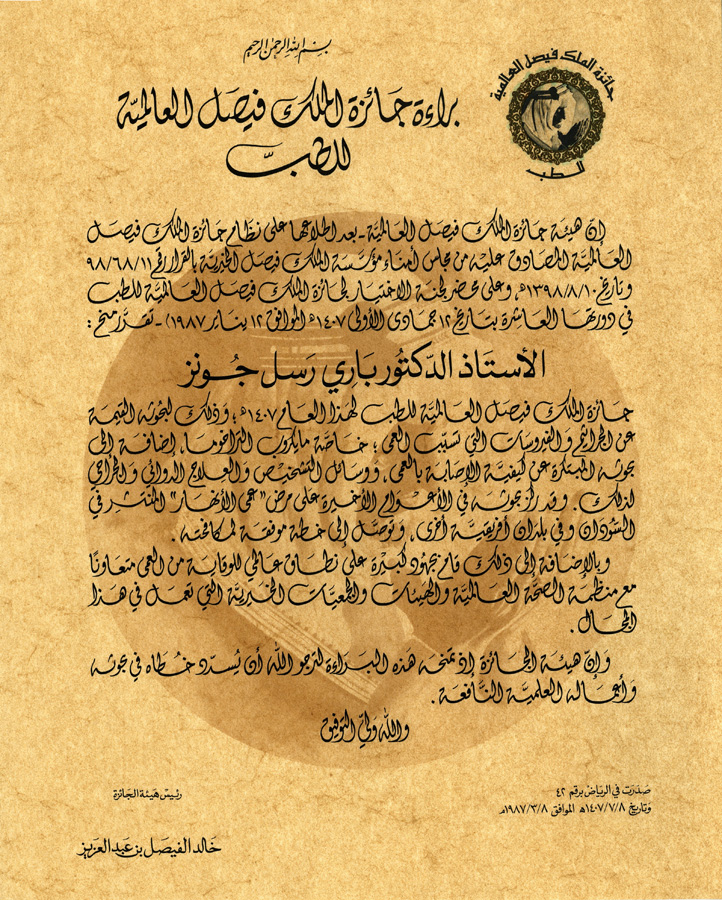

Professor Barrie Russell Jones
King Faisal Prize in Medicine 1987 Laureate
Topic: "Prevention of Blindness"
It has been my passion, in research for deeper understanding of the pathways to massive blindness in a community, to remove barriers to the elimination of this scourge

Barrie Jones received his B.Sc. in Chemistry and Physics from Victoria College at Wellington University in 1942, and his MD from the University of Otago, Dunedin in 1946, before moving to the United Kingdom in 1952, where he specialized in general and surgical ophthalmology at the University of London, qualifying in surgery in 1955. He served for 17 years as a Professor of Clinical Ophthalmology at the Institute of Ophthalmology in Moorefield’s Eye Hospital in London before relinquishing the chair to set up a new Department of Preventive Ophthalmology. In 1981, he established the International Center for Eye Health at the Institute of Ophthalmology, which became – under his leadership – one of the foremost institutions for the education and training of ophthalmologists from all over the world.
Professor Jones devoted his entire professional life to studying the etiology, transmission, pathogenesis, and treatment of eye diseases and infections. For 12 successive years, he spent several weeks each year in Iran to pursue his studies on trachoma. He made seminal contributions to the diagnosis, therapy and prevention of viral and chlamydial eye diseases, and developed novel chemotherapeutic measures and surgical procedures to prevent blindness due to trachoma. In later years, he turned his attention to river blindness and designed novel strategies for controlling that widely spread disease in Africa. His group was the first to show that the drug Ivermectin can reduce the incidence of blindness in onchocerciasis (a parasitic disease that involves the eye).
Professor Jones published hundreds of research papers and authored or coauthored more than 23 books, in addition to many invited lectureships and conference presentations. In recognition of his outstanding contributions to the fight against blindness, he was appointed CBE by the British Queen in 1985.
This biography was written in the year the prize was awarded.
- He was appointed Professor Emeritus of Preventive Ophthalmology and Director of the International Center for Eye Health at the London School of Hygiene and Tropical Medicine.
- He received many awards including:
- Gonin Medal in 1990.
- Global Achievement Award in 2004.
- Professor Barrie Russell Jones passed away in Tauranga on 19/8/2009.


